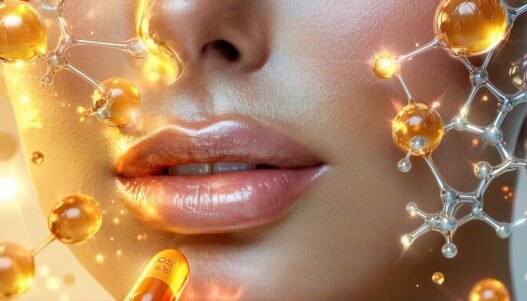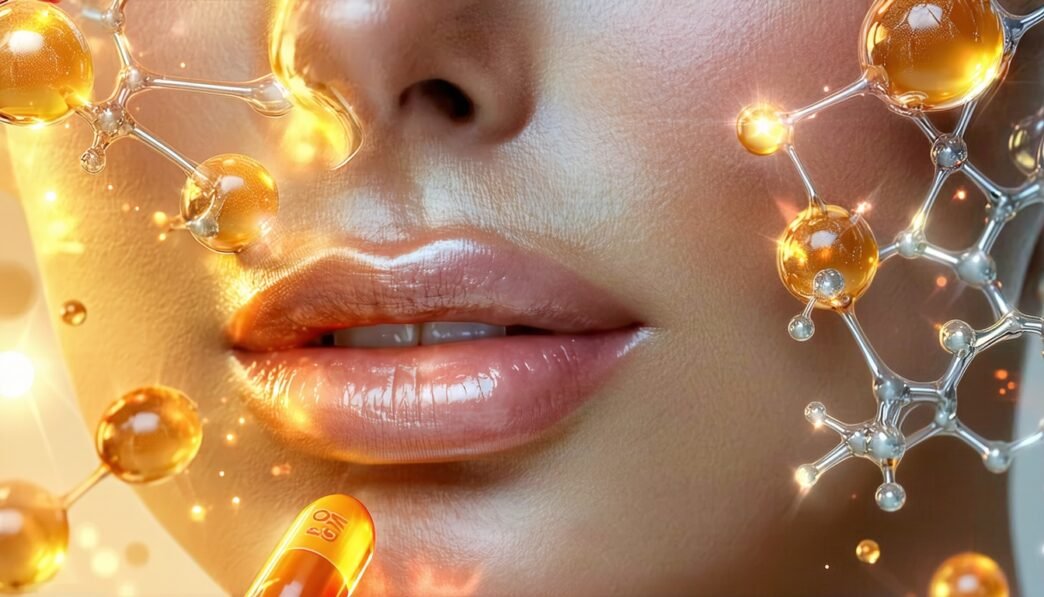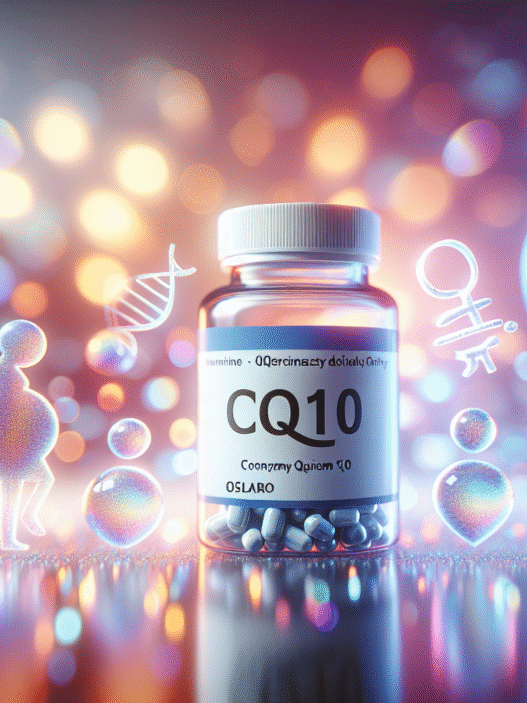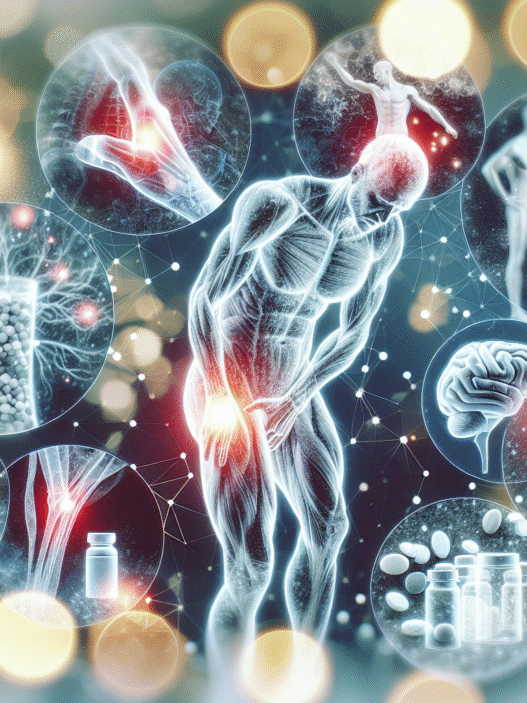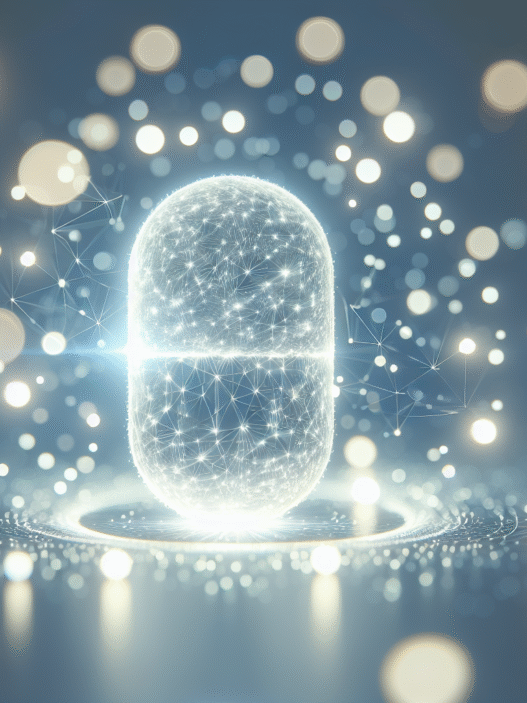Understanding CoQ10
Introduction to Coenzyme Q10
Coenzyme Q10, commonly referred to as CoQ10, is a naturally occurring compound found in every cell of the body. It plays a critical role in energy production by aiding the mitochondria, which are the powerhouses of the cell, in converting nutrients into adenosine triphosphate (ATP), the energy currency used by cells. In addition to its energy-producing functions, CoQ10 acts as a potent antioxidant, protecting cells from damage caused by free radicals (NCBI).
CoQ10 levels naturally decline with age, leading to a growing interest in its supplementation. It has been shown to offer several health benefits, including improved heart health, enhanced muscle strength, and better management of conditions like diabetes and fibromyalgia.
Importance of CoQ10 in Mitochondria
Within the mitochondria, CoQ10 is an essential component of the electron-transport chain, a series of complexes that generate ATP through oxidative phosphorylation. CoQ10 helps to shuttle electrons between complexes, facilitating the energy production process. This function is particularly crucial for tissues with high energy demands, such as the heart, liver, and muscles.
In addition to its role in energy production, CoQ10 serves as an antioxidant in the mitochondria, protecting membrane proteins and phospholipids from lipid peroxidation caused by free radicals. This antioxidative property is especially relevant for aging populations concerned with maintaining vitality and preventing cellular damage. Studies have demonstrated that CoQ10 supplementation can mitigate symptoms of heart failure, enhance functional capacity, and reduce adverse cardiovascular events, highlighting its importance in mitochondrial health.
For individuals interested in the anti-aging properties of CoQ10, it’s important to understand its role in collagen production and skin health. Visit our articles on coq10 benefits for skin and coq10 anti-aging properties for detailed insights.
| Benefit | Study | Reference |
|---|---|---|
| Improved Heart Health | Reduced symptoms and adverse events in heart failure | NCBI Bookshelf |
| Enhanced Muscle Strength | Decreased pain and fatigue in fibromyalgia | NCBI Bookshelf |
| Antioxidant Properties | Protection against lipid peroxidation | NCBI |
By understanding the significance of CoQ10 in mitochondrial function, it becomes clear why this compound is essential for overall health and vitality. For more information on how CoQ10 influences cellular health, explore our article on coq10 and mitochondrial function.
Benefits of CoQ10 Supplementation
Counteracting Statin-Medication Effects
Statin medications are commonly prescribed to lower cholesterol, but they can interfere with the body’s natural production of CoQ10. This can lead to decreased CoQ10 levels in individuals taking these medications. Supplementing with CoQ10 can help counteract this effect, maintaining optimal levels of this vital compound. The recommended dosage ranges from 100 to 200 mg per day.
Improving Heart Health
CoQ10 supplementation has been shown to provide significant benefits for heart health. It can help reduce pain associated with angina, lower LDL cholesterol, and decrease overall heart disease risk. Additionally, CoQ10 has been linked to lower all-cause mortality in individuals with heart conditions. For heart health, the recommended dosage is up to 200 mg per day. For more information on the cardiovascular benefits of CoQ10, visit our article on coq10 and heart health.
| Heart Benefit | CoQ10 Impact |
|---|---|
| Angina Pain | Reduced |
| LDL Cholesterol | Lowered |
| Heart Disease Risk | Decreased |
| Overall Mortality | Lowered |
Enhancing Muscle Strength and Vitality
As people age, CoQ10 levels naturally deplete, leading to decreased muscle strength and vitality. Supplementation with CoQ10, particularly in the range of 100 to 200 mg per day, has been shown to improve physical performance and muscle strength in older adults (Healthline). For those looking to boost their energy and vitality, check out our recommendations on coq10 supplements for energy.
Managing Diabetes
CoQ10 supplements have proven to be beneficial for managing diabetes. They can improve insulin resistance, regulate blood sugar levels, and reduce oxidative stress, which is especially important in combating diabetes-related complications. The recommended dose for individuals with diabetes is 100 to 200 mg per day (Healthline).
| Diabetes Management | CoQ10 Impact |
|---|---|
| Insulin Resistance | Improved |
| Blood Sugar Levels | Regulated |
| Oxidative Stress | Reduced |
| Diabetes Complications | Combated |
CBD supplementation has many potential benefits for overall health and vitality, making it an important part of an anti-aging routine. To learn more about the anti-aging properties of CoQ10, visit our section on coq10 anti-aging properties.
CoQ10 and Collagen Production
Stimulatory Effects on Collagen Production
Coenzyme Q10 (CoQ10) plays a significant role in stimulating collagen production. CoQ10 increases the mRNA expression of type I, IV, VII collagen, elastin, and HSP47 in human skin fibroblasts. This elevation in mRNA levels promotes the synthesis of these crucial proteins, which are essential for maintaining skin structure and elasticity.
| Collagen Type | Function |
|---|---|
| Type I | Structural support |
| Type IV | Basement membrane |
| Type VII | Anchoring fibrils |
Regular CoQ10 supplementation can therefore contribute to enhanced collagen production, which is beneficial in an anti-aging context for those concerned with maintaining youthful and firm skin. For more on coq10 anti-aging properties, see our detailed articles.
Role in Skin Fibroblasts
CoQ10 exerts its effects by interacting with skin fibroblasts. Fibroblasts are cells responsible for the production of collagen and other extracellular matrix components. Treatment with CoQ10 increases intracellular levels of the coenzyme, promoting fibroblast proliferation (PubMed Central). The increase in cell numbers and activity leads directly to greater collagen and elastin synthesis.
A study showed that treatment with 10 μM CoQ10 significantly increased the number of fibroblasts, highlighting its positive impact on cell proliferation. This also suggests potential benefits for skin renewal and firmness, two critical aspects of anti-aging skincare.
Water-Soluble Forms for Skin Benefits
Water-soluble CoQ10 forms, such as P40, have shown enhanced efficacy in collagen production. P40 enhances cell proliferation in fibroblasts and increases the mRNA levels of type I, IV, and VII collagens. It also upregulates the expression of HSP47 and elastin in a dose-dependent manner.
| CoQ10 Form | Effect on Fibroblasts | Collagen Production |
|---|---|---|
| Standard CoQ10 | Moderate Increase | Moderate |
| Water-Soluble P40 | Significant Increase | High |
Water-soluble CoQ10 such as P40 may offer superior skin benefits by enhancing collagen synthesis and fibroblast activity more efficiently than standard forms. This makes it particularly beneficial for anti-aging treatments. For more information on coq10 benefits for skin, visit our extensive coverage.
Exploring the different forms and applications of CoQ10 can provide valuable insights into optimizing your anti-aging skincare routine. To learn more about the best products and supplements, check out coq10 skin care products and best coq10 supplements.
Anti-aging Effects of CoQ10
CoQ10 and Skin Health
Coenzyme Q10 (CoQ10) is increasingly recognized for its potential benefits on skin health, particularly in the context of aging. CoQ10’s role in mitigating oxidative damage caused by UV rays has shown promise in reducing the depth of wrinkles and improving overall skin appearance. For those in search of more specific benefits, studies show that CoQ10 supplementation can significantly improve the skin’s texture and vitality through its powerful antioxidant properties, reducing free radicals and preventing photoaging.
CoQ10 is essential for the production of cellular energy (ATP), which is vital for maintaining the youthful function of skin cells. Individuals concerned with aging can find valuable insights in our article on CoQ10 and skin health.
Potential for Skin Rejuvenation
Research into CoQ10’s effects on skin rejuvenation is promising. Treatment with CoQ10 has been shown to increase intracellular CoQ10 levels and promote fibroblast proliferation. This proliferation is crucial for skin repair and regeneration as fibroblasts produce collagen and elastin, the proteins responsible for skin elasticity and firmness (PubMed). CoQ10 treatment also increases the mRNA expression of several types of collagen and elastin, suggesting enhanced skin framework repair capabilities.
An innovative study showed that a protransfersomal emulgel containing CoQ10 increased collagen density and the number of fibroblast cells in UV-radiation-induced skin aging in mice, reflecting its potential for repairing the skin aging process. This indicates that CoQ10 could be very effective for those looking to rejuvenate their skin. For more information, visit our article on CoQ10 and skin rejuvenation.
Collagen Density and Skin Smoothness
One of the remarkable benefits of CoQ10 for aging skin is its ability to enhance collagen density. CoQ10 stimulates the production of various types of collagen—types I, IV, and VII—along with elastin (PubMed). Increased collagen density contributes to firmer, smoother skin by reinforcing the skin’s structure.
| Benefit | Description |
|---|---|
| Collagen Types Stimulated | I, IV, VII |
| Additional Proteins | Elastin, HSP47 |
| Primary Effects | Increased collagen density, enhanced skin smoothness, reduction in wrinkle depth |
Water-soluble forms of CoQ10, such as P40, offer substantial advantages in terms of collagen production and anti-aging effects on the skin. By incorporating CoQ10 into your skincare routine, you can support collagen density and skin smoothness, effectively countering the signs of aging. Learn more about how CoQ10 can improve your skin’s firmness and smoothness in our article on CoQ10 and collagen production.
By understanding the diverse benefits of CoQ10 for skin health, rejuvenation, and collagen density, individuals aged 35-65 can make informed decisions about integrating this powerful substance into their skincare routines. For further exploration on the benefits of CoQ10, check out our related articles on CoQ10 anti-aging properties and CoQ10 for youthful skin.
CoQ10 for Body Functions
Coenzyme Q10 (CoQ10) is a vital antioxidant that plays an important role in various body functions. Let’s explore its significance in energy production, mitochondrial function, and its antioxidant properties.
Energy Production and Disease Prevention
CoQ10 is a critical component in the electron-transport chain of mitochondria, which is essential for the production of adenosine triphosphate (ATP) — the primary energy carrier in cells. By aiding in energy production, CoQ10 can help prevent and manage various health conditions such as cardiomyopathy, muscular dystrophy, and periodontal disease.
Supplementing with CoQ10 energizes the body, increases ATP production, and supports the treatment of diseases like cardiomyopathy and diabetes (NCBI). It also plays a role in reducing the risks associated with statin drugs, which are linked to muscle pain and weakness.
| Condition | Benefits of CoQ10 Supplementation |
|---|---|
| Cardiomyopathy | Symptom reduction, improvement in heart function |
| Muscular Dystrophy | Enhanced muscle function |
| Periodontal Disease | Improved gum health |
For more details on CoQ10 supplements, visit our article on best CoQ10 supplements.
Role in Mitochondrial Function
CoQ10 is essential for mitochondrial function. It helps in the production of ATP, which is necessary for cell energy. CoQ10 is also a part of the mitochondrial electron-transport chain, where it helps in transferring electrons and producing energy. This is particularly important for tissues with high energy demands such as the heart and muscles.
Improved mitochondrial function through CoQ10 supplementation has been linked to better endurance, vitality, and heart health. For further reading, visit our article on CoQ10 and mitochondrial function.
Antioxidant Properties
CoQ10 is a potent antioxidant that helps protect cells from oxidative damage. It acts as a free radical scavenger, protecting lipids, proteins, and DNA from oxidative stress (NCBI). This protection is vital for maintaining skin health, reducing signs of aging, and supporting overall cellular health.
Antioxidant properties of CoQ10 contribute to its anti-aging effects, making it a popular ingredient in CoQ10 skin care products. Additionally, CoQ10 supplementation has shown to decrease cardiovascular mortality risk in older adults when combined with selenium (NCBI Bookshelf).
For a deeper dive into its benefits, refer to our article on CoQ10 antioxidant benefits.
By understanding the various roles of CoQ10 in energy production, mitochondrial function, and its antioxidant effects, one can better appreciate its importance in maintaining health and vitality. Explore more about CoQ10’s impact on energy and disease prevention and its potential in anti-aging skincare.
Advances in CoQ10 Application
CoQ10 in Cosmetics
Coenzyme Q10 is gaining popularity in the cosmetic industry due to its potent antioxidant properties (NCBI). It helps in neutralizing free radicals, reducing skin damage, and promoting overall skin health. Incorporating CoQ10 in cosmetics, particularly anti-aging creams and serums, has shown potential in improving skin elasticity and reducing the appearance of wrinkles.
Cosmetic products with CoQ10 often target individuals looking to rejuvenate their skin and combat the signs of aging. It’s particularly effective when combined with other active ingredients such as hyaluronic acid and vitamin C. This combination aids in enhancing the overall benefits and providing a comprehensive solution for skin rejuvenation.
Use in Skin-Aging Therapy
In skin-aging therapy, CoQ10 plays a crucial role due to its involvement in collagen production and cellular repair. Studies have indicated that water-soluble forms of CoQ10, like P40, significantly enhance collagen synthesis, which is vital for maintaining skin firmness and reducing sagging (PubMed Central). Despite some contradictory findings on the combination of CoQ10 and fish collagen regarding skin hydration and elasticity (NCBI), CoQ10’s standalone benefits are well-documented.
Therapeutic applications of CoQ10 focus on addressing common aging issues such as fine lines, wrinkles, and uneven skin tone. By promoting collagen production, CoQ10 helps in maintaining the structural integrity of the skin, leading to a more youthful and vibrant appearance. For more insights on its effectiveness, refer to our article on coq10 anti-aging properties.
Innovative Delivery Systems
The efficiency of CoQ10 in skincare greatly depends on its ability to penetrate the skin effectively. Advances in delivery systems have led to the development of innovative methods such as protransfersomes, which enhance skin penetration and ensure better stability of CoQ10. Protransf-CoQ10, for instance, transforms into vesicles with particle sizes of approximately 201.5 ± 6.1 nm and a zeta potential of −11.26 ± 5.14 mV, demonstrating potential for improved absorption.
Innovative delivery techniques aim to maximize the bioavailability of CoQ10, thereby increasing its efficacy in anti-aging therapies. These methods involve nano-encapsulation and liposomal delivery, which help in maintaining the stability of CoQ10 and enhancing its penetration into the deeper layers of the skin. For more details on these advancements, check out our article on coq10 for anti-aging skincare.
| Delivery System | Particle Size (nm) | Zeta Potential (mV) |
|---|---|---|
| Protransf-CoQ10 | 201.5 ± 6.1 | -11.26 ± 5.14 |
The ongoing research and development in CoQ10 applications continue to unveil new benefits and methods for its effective utilization in skin care and anti-aging products. Understanding these advancements helps in making informed decisions regarding the best coq10 supplements and products for youthful and healthy skin.










